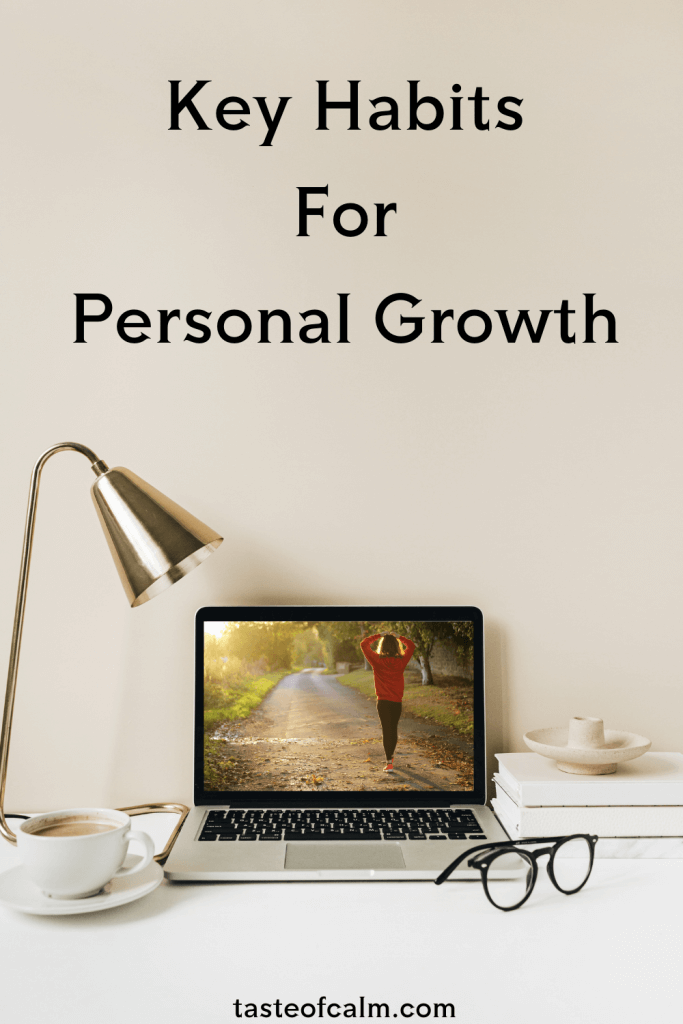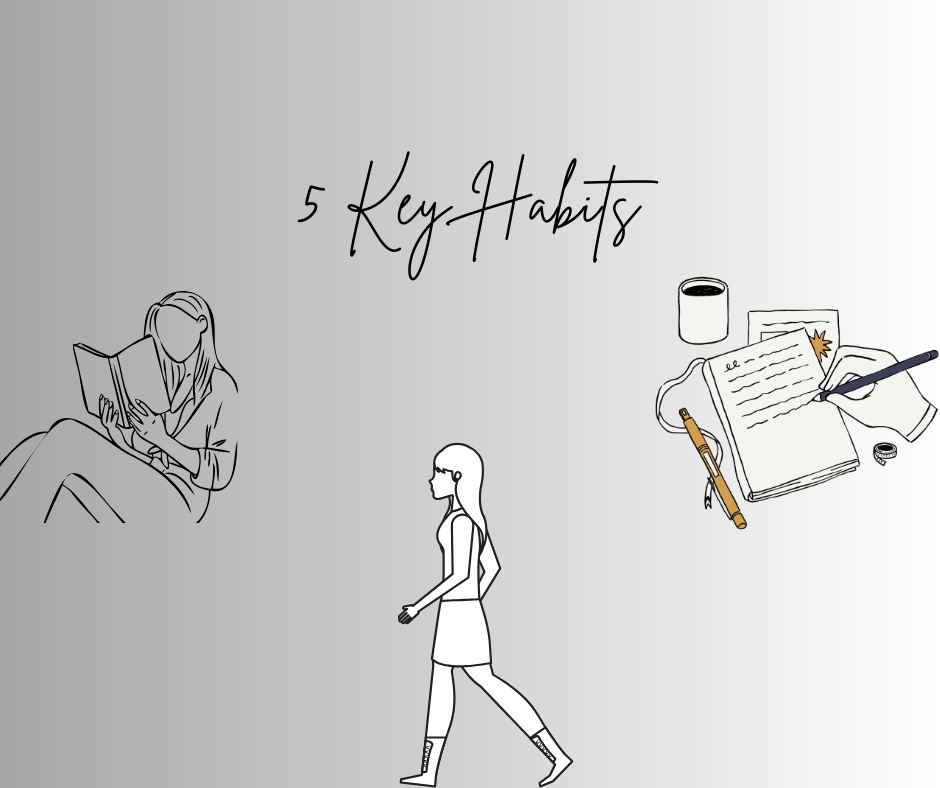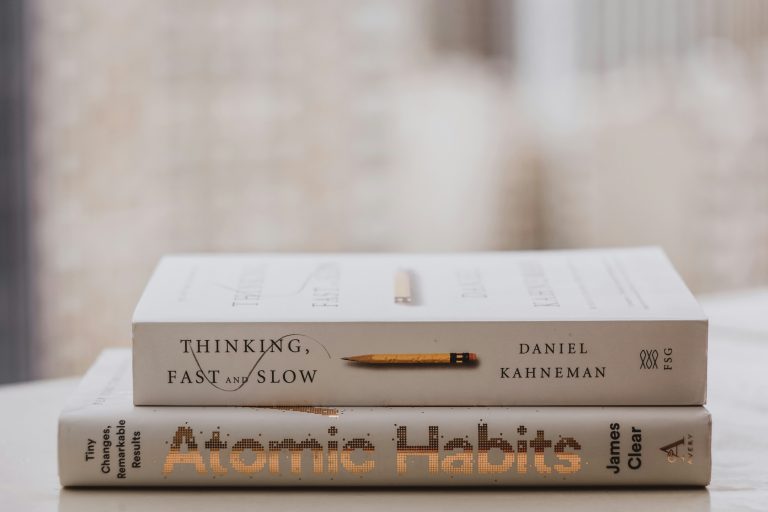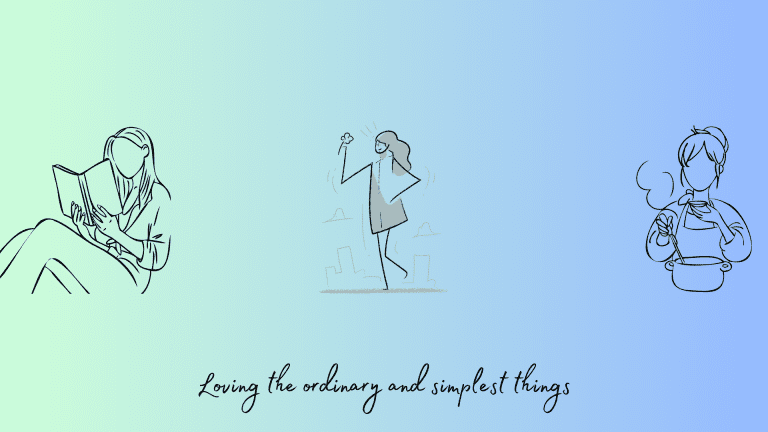5 Key Habits to Improve Your Life
There are many habits that can profoundly change your life.
At the end of every year, I sit down and think about the changes I am going to make next year. There are usually the same things I try to implement every year and fail.
This year is an exception. For the first time, I successfully changed some key habits in my life. And most importantly I finally started to pay attention to the right things.
This was also the first year I realized that my well-being was the key to all success. A key to increased productivity, motivation, and happiness.
Once I started to implement habits that made me feel good, I started to see improvement and success in all areas of my life.
You only have so much time in a day. So there are only so many habits you can adopt.
The habits you choose to implement are of utmost importance because they create your future and influence your quality of life.
The habits you choose must be high leverage, high impact, and highly enjoyable.
The habits you choose should help you refocus your attention on the depth of life.
The list I am going to share today may seem like a basic list of good habits. They are indeed very simple, nothing extraordinary. Yet they make the biggest difference to the quality of your life.
Reading

Reading alone will make the biggest difference in your life and bring about so many changes. The key is finding the right books to read, not only for enjoyment but also for growth and learning.
Introducing this habit is not that difficult. Just set aside some time in the evening before bed to read a couple of pages.
The ideas you will start to learn will expand your mind and introduce you to so many new opportunities and changes you can make in both your personal and business life.
You will be exposed to novel ideas that allow you to create new goals for yourself.
You will also start noticing opportunities that will motivate you to do something new. You might even start a business that you have been thinking about for years.
I keep a lot of books around my house. At my desk where I am typing this, I have 4 books. In my bedroom another 2. I keep them everywhere in the house so that when I sit down or lie down I can start reading instead of scrolling my phone.
Walking
When I was in college, I used to study and pace the room. I never knew why, but for some reason when I walked my mind worked better.
Even now, when I am preparing a meeting with my colleagues, I find myself pacing up and down the room and thinking aloud what I am going to say.
Many studies have shown the effects walking has on our brains. And it is not just about the physical aspects of walking. Of course, it is good for our health, we are moving our bodies, and like any exercise, it is highly beneficial to us.
However, walking has a profound effect on our thinking, on our brains.
When we go for a walk, the heart pumps faster, circulating more blood and oxygen not just to the muscles but to all the organs—including the brain.
Walking has also played a big role in some of humanity’s greatest minds. Frederick Nietzsche said, “It is only ideas gained from walking that have any worth.”
Charles Darwin was another genius who was said to have taken three 45-minute walks each day.
Charles Dickens was an avid walker, so much so that his friends worried it bordered on pathology. Dickens would write each day from 9 am — 2 pm and then walk for the rest of the day. He was said to walk up to 20–30 miles at a time.
Writers and thinkers have recognized the benefits that walking provided their creativity and problem-solving skills.
Henry David Thoreau wrote in his journal, about walking,
“Methinks that the moment my legs begin to move, my thoughts begin to flow.”
So here is how I take advantage of this habit:
- I walk when I want to come up with new ideas
- I walk when I want to calm my mind
- I walk when I want to meditate
- I walk when I want to resolve a problem
I do not set any unrealistic goals, like walking 10,000 steps every day. That’s just not possible for me, with two little kids and all the things I need to do in one day. But I try to do some walking every single day.
Writing

When I was younger, journaling was a daily ritual. I’d pour my thoughts onto the page, reflecting on my feelings, events, and observations. It was a simple but meaningful habit that helped me process life.
As time passed, that habit disappeared. After college, life became busy with work and raising kids, and I stopped writing altogether.
Fast forward to 2024, and I’ve rediscovered journaling. Now, I start each morning with a short session to set a positive tone for the day. I focus on gratitude, affirmations, and writing down my daily goals. I also track the habits I’m working on.
After breakfast, I dedicate an hour to writing about topics that interest me or content for this blog. This focused time has become one of the most productive and fulfilling parts of my day.
I also keep “working journals,” where I jot down quotes from books, YouTube videos, or other sources of inspiration. These journals aren’t polished or pretty—they’re practical tools to help me learn, stay focused, and remember what matters most.
Here are a couple of reasons why you need to start writing:
- Write to improve your mindset (gratitude, affirmations)
- Write to remember your ideas and organize your life (planners, workbooks)
- Write to express your feelings (diary)
- Write to develop your business (planner)
Writing is one of those habits that brings you surprisingly many benefits – both for your mindset, organization, and business.
Being offline
This year, I made a significant change: I reduced my daily screen time from 3–4 hours to just 1 hour. While it’s a step in the right direction, I still catch myself endlessly scrolling when I have a few spare moments—waiting at the doctor’s office or before heading out the door.
Looking back, this habit of constant phone use has negatively impacted the quality of my life in more ways than I realized. It left me feeling inadequate, insecure, and unhappy as I compared my life to the curated highlight reels on Instagram. It affected my focus, making me feel fuzzy and unable to fully commit to my responsibilities, whether at work or at home.
Perhaps most heartbreakingly, it influenced my relationships with my husband and kids. I spent time scrolling when I could have been present with them. Reflecting on this, I’ve realized that many of the struggles in my life can, in some way, be tied back to my habit of staring at my phone.
Why Reducing Screen Time Matters
Let’s put it into perspective: if you spend just 2 hours a day on your phone, that’s 14 hours per week—nearly a full day. Imagine redirecting that time toward activities that enrich your life:
- Reading or writing
- Exercising and improving your health
- Spending quality time with your family
- Pursuing hobbies or personal growth
The more distractions you eliminate, the more mental and emotional energy you’ll have to focus on important things. Reducing screen time isn’t just about cutting back on hours; it’s about reclaiming your life, your focus, and your relationships.
Deep-work
Who you are, what you think, feel, and do, what you love—is the sum of what you focus on. Cal Newport
During my college years, I would start each day by focusing on the most important lessons for my exams. It was a habit that helped me learn efficiently and achieve great results.
As I transitioned into work life, that habit slipped away. My days became filled with repetitive, simple tasks, and I was constantly multitasking—assigning projects, listening to podcasts, and chatting with my sister, all at once. I thought I was being productive, but in reality, I was stuck in a cycle of shallow work.
Then, in 2024, I read “Deep Work” by Cal Newport, and it was a wake-up call. I realized I had spent years doing work that lacked focus and depth, losing my ability to concentrate on what truly mattered. That’s when I decided to implement a new routine.
Every morning, after exercising, I dedicate 1–2 hours to writing or working on a meaningful project. I eliminate all distractions—my phone stays out of reach, and I focus entirely on the task at hand.
The results have been extraordinary. The progress I’ve made in my work is remarkable, and it’s become clear to me that constant multitasking holds us back. It robs us of the opportunity to achieve real progress—whether in our careers, personal lives, or creative endeavors.
In today’s world of endless notifications and overwhelming options, deep work is no longer a luxury—it’s a necessity. If you want to change your life, focus deeply on what truly matters.
Conclusion
In a world that glorifies “hacks” and shortcuts, I believe it is important more than ever to master fundamental skills. From daily walks to focused work sessions, these small actions form the backbone of any successful journey.
These habits don’t just support high-level achievements—they free up mental space, foster personal growth, and enable you to build expertise in your field. More importantly, they bring balance and clarity, allowing you to truly enjoy your life, nurture your relationships, and feel a genuine sense of progress in everything you do.
Success isn’t about quick fixes; it’s about showing up consistently and investing in the habits that make long-term growth possible.
Related Posts
How to Change for the Better: Tips for Personal Growth
Setting Goals: Begin with the end in mind
The Best Self-Help Books to Read for Personal Growth







